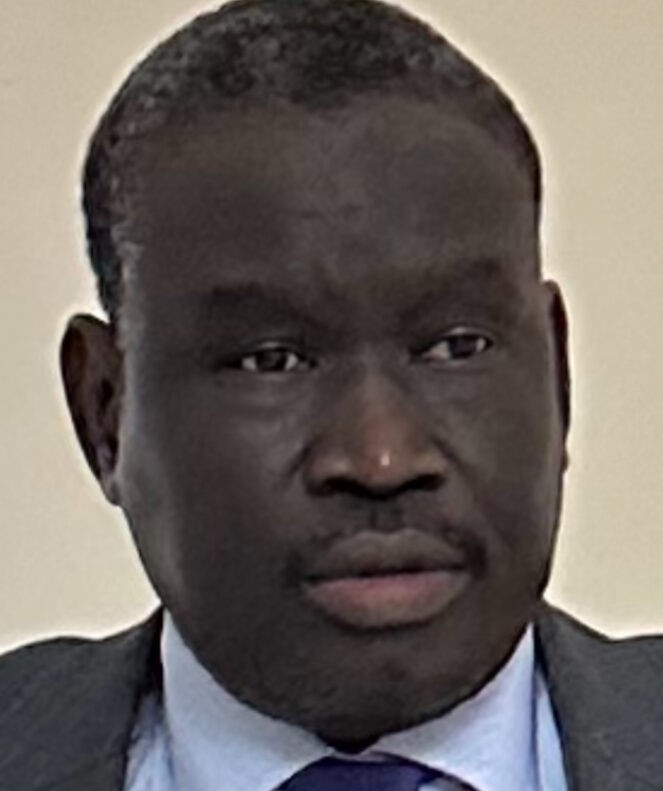South Sudan is not only enduring a political and economic crisis—it is suffering from a deeper crisis of political imagination. As institutions weaken and elite fragmentation intensifies, two fundamentally different approaches to national reform are emerging.
On one hand, there is the institutional approach: the belief that meaningful change comes from rebuilding the rule of law, empowering civil society, reforming political parties, and restoring public trust through transparent, inclusive, and accountable structures. On the other, there is the access-based approach: a model that bypasses public processes in favor of personal influence, especially through appeals to individuals with informal proximity to the presidency.
This debate is not merely theoretical—it defines the direction our country will take. My position is not rooted in personal rivalry but in long-standing convictions shaped by decades of political activism, public service, and intellectual engagement. Since the mid-1990s, I have been active in student movements, consulted across economic and political sectors, and worked closely with international and national institutions on governance and reform. My critique is not from the sidelines; it is part of a broader vision for national renewal grounded in logic, political science, and historical experience.
I fully recognize the frustration that drives many to seek unconventional channels for reform. But bypassing institutions in favor of personal appeals—even to well-meaning individuals close to power—is neither sustainable nor strategic. This is not a rejection of individual goodwill but a reminder that real transformation stems from collective agency, not personal access.
Let me be clear: When I speak of institutions, I do not mean the paralyzed structures of the current regime—the hollowed-out parliament, weakened judiciary, or ministries captured by patronage. I refer to institutions of transformation: civic movements, professional associations, youth and women’s networks, independent media, political forums, and all platforms grounded in civic participation and democratic legitimacy.
In contrast, access politics is not a reform strategy—it is political improvisation. It operates through personal networks, elite proximity, and informal arrangements. In political science, this model is called neo-patrimonialism, where loyalty replaces law and informal power overshadows institutional authority.
History has shown us the outcomes of such models. From Zaire under Mobutu to Sudan under Bashir, regimes built on access politics succumb to chronic instability, corruption, and elite entrenchment. Even where private influence secures temporary changes, it cannot institutionalize justice or safeguard the public interest. It reinforces the idea that power belongs to a few individuals—not to citizens.
Worse, access politics transforms citizens into clients—people who beg for favors rather than organize for rights. It undermines civic confidence, disempowers communities, and hollows out the concept of democratic citizenship.
The real danger lies not in individuals but in a mindset that conflates proximity with progress and improvisation with strategy.
By contrast, the institutional path is slow, difficult, and demanding. Yet it is the only proven method for rebuilding post-conflict societies. From South Africa to Liberia, Indonesia to Chile, successful transitions were never driven by family insiders. They were built through the painstaking process of creating public institutions that endure beyond personalities.
Those who abandon institutional approaches in favor of private appeals are not offering reform—they are practicing political survivalism. They adapt to dysfunction rather than confront it, normalizing proximity over principle and access over accountability.
Let us be honest: South Sudan’s problems will not be solved in living rooms, family circles, or diplomatic backchannels. Our republic will be rebuilt in public squares, courtrooms, classrooms, and civic assemblies—spaces where citizens act not as spectators but as owners of the state.
This is not an attack on anyone. It is a call for intellectual clarity and national honesty.
The debate between institutions and access is not a technical matter—it determines whether South Sudan becomes a functional republic or remains trapped in elite paralysis. Let us choose the harder but more durable path: the path of public reform, legal order, and citizen sovereignty.
Let us believe that power belongs to the people—not to proximity, whispers, or privilege.
South Sudan does not need new brokers. It needs new builders. It does not need favors. It needs justice. And for that, we must organize, not negotiate.
The writer, Samuel Peter Oyay, is a South Sudanese political activist, strategist, and commentator with over two decades of experience in governance and management. He can be reached via samualjago@yahoo.com
The views expressed in ‘opinion’ articles published by Radio Tamazuj are solely those of the writer. The veracity of any claims made is the responsibility of the author, not Radio Tamazuj.




